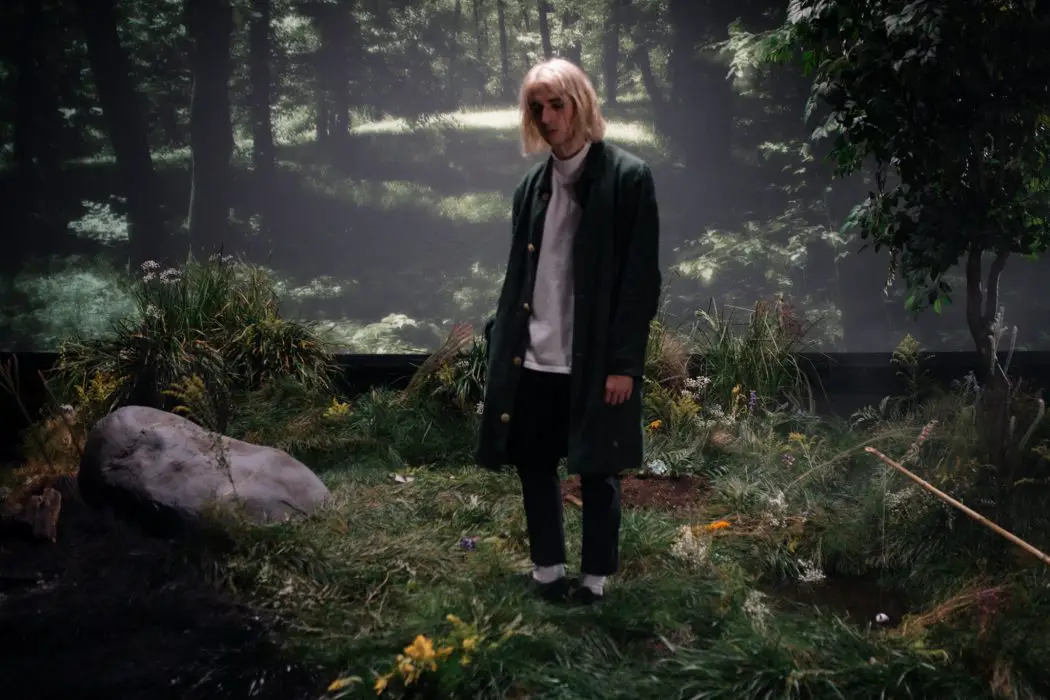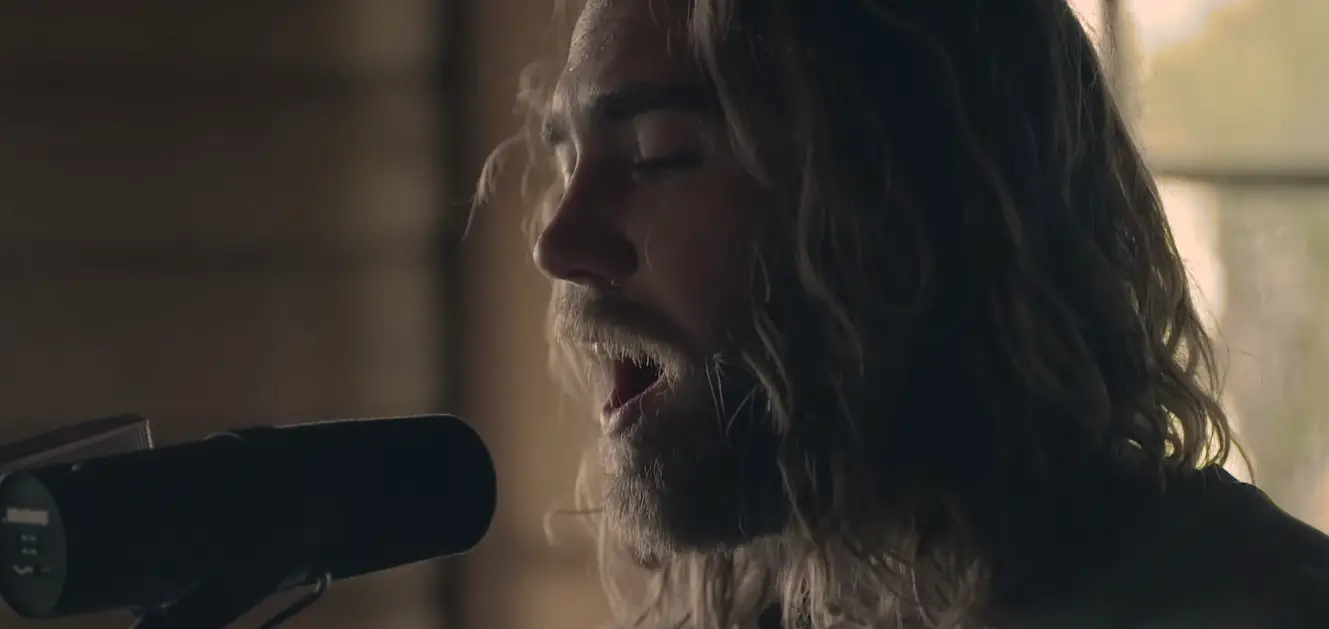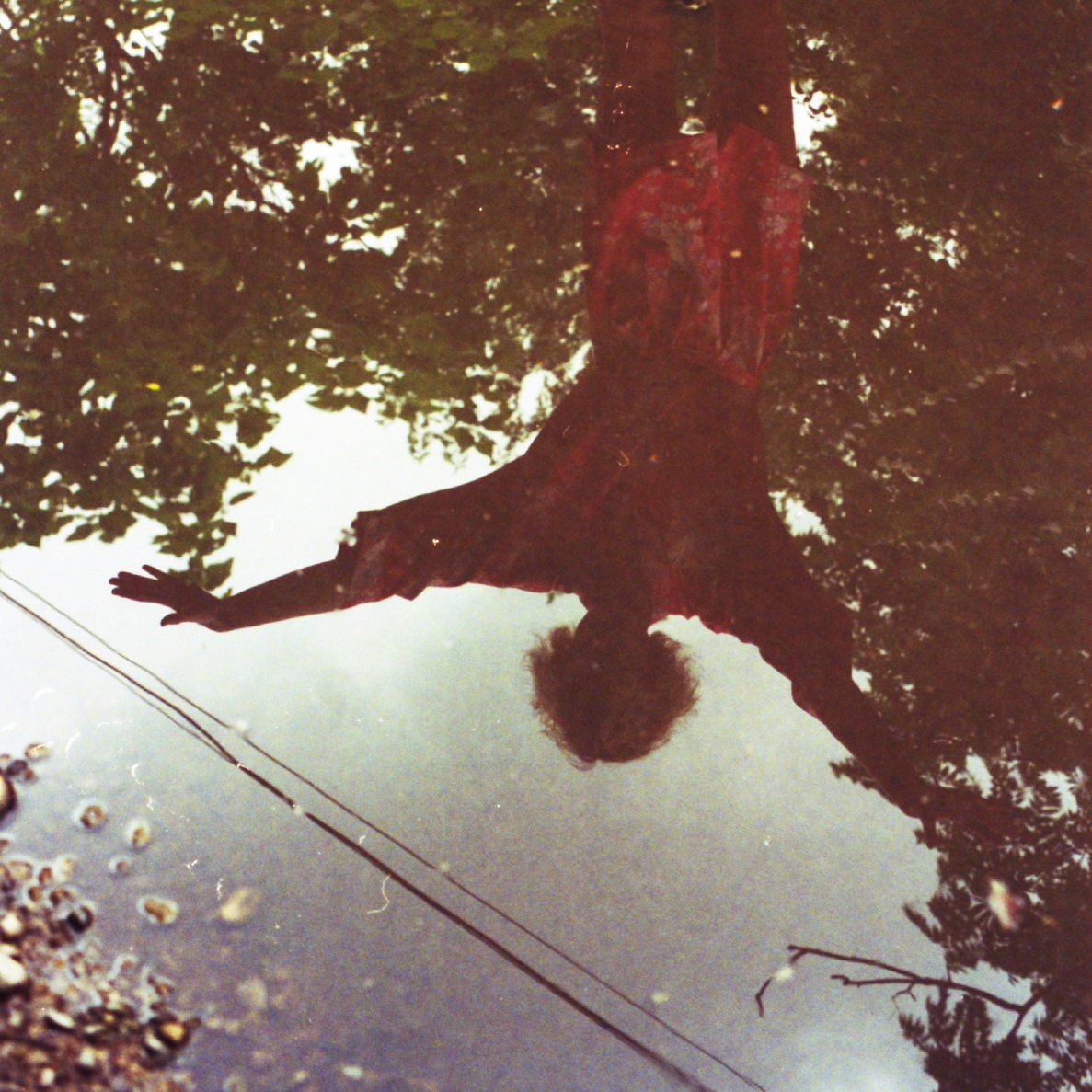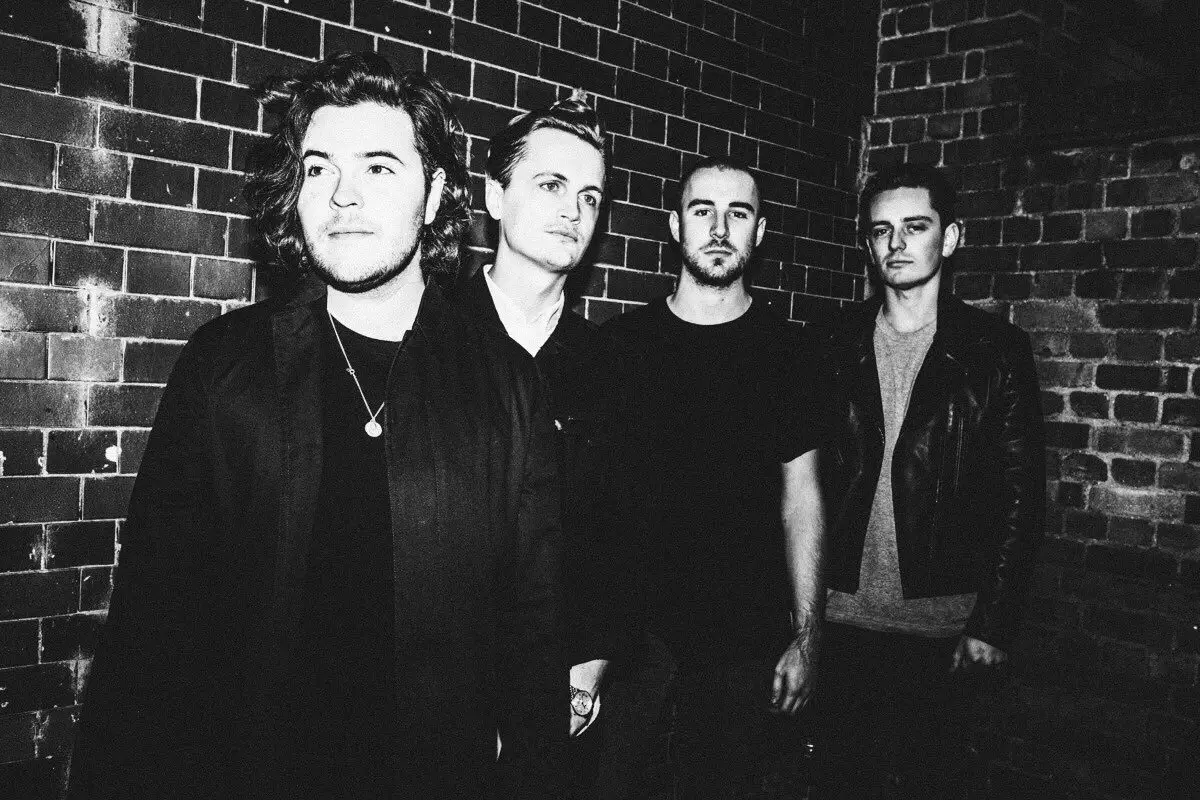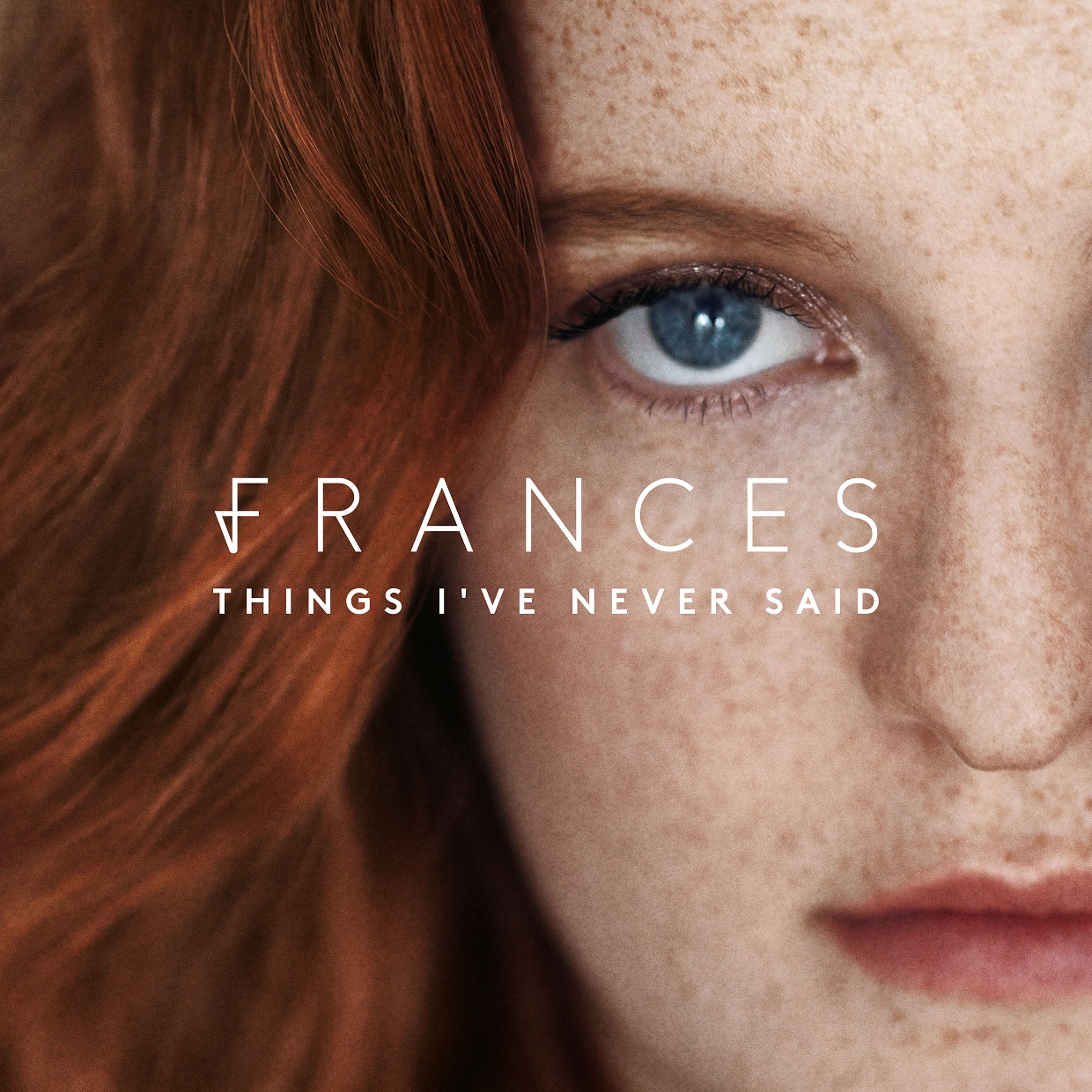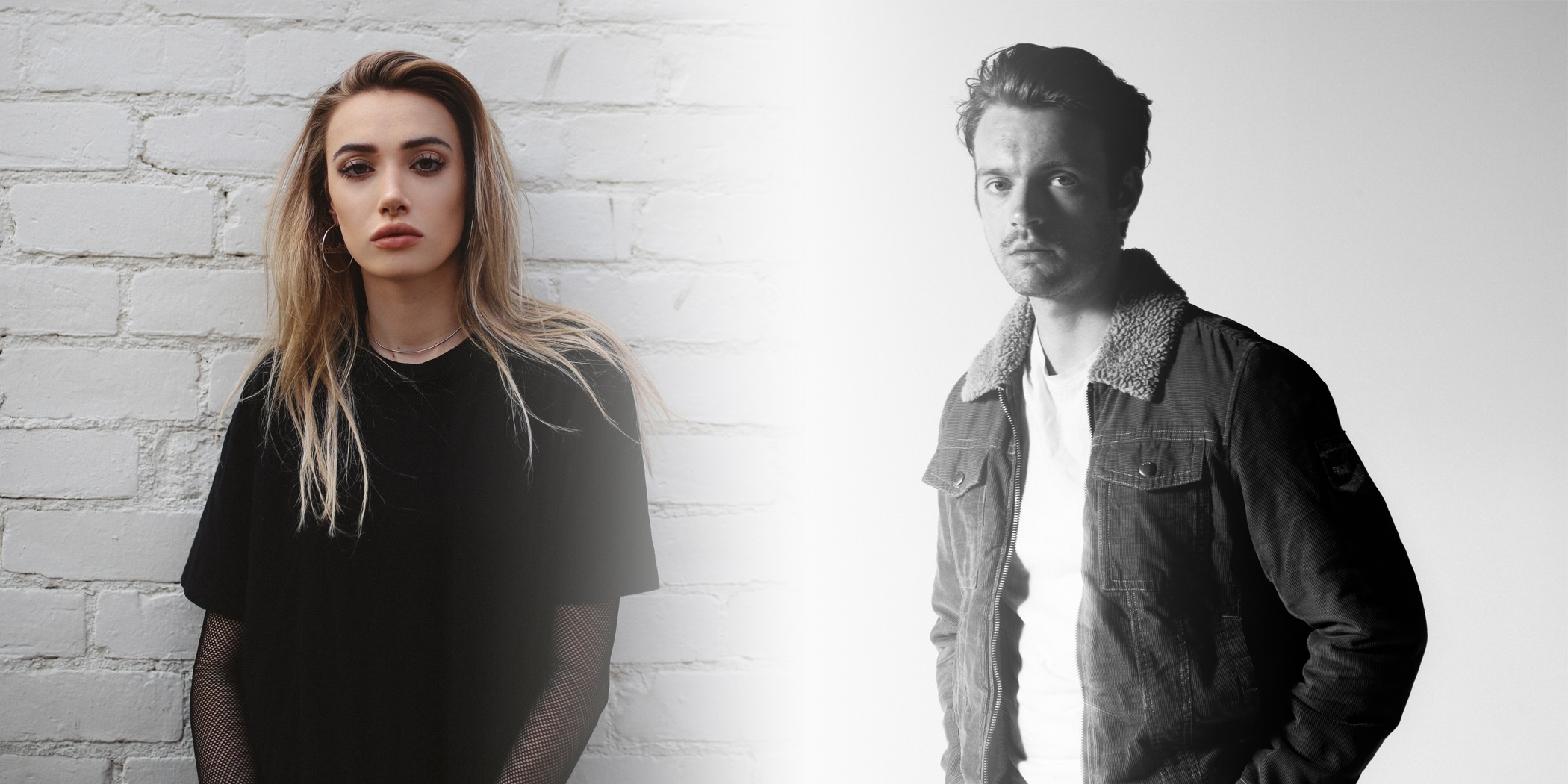Atwood Magazine spoke to Porter Robinson about the balancing acts of personal experience and external inspiration in the creation of authentic music, nostalgia, and appreciation for the present, and how they all come together in his upcoming album, ‘Nurture.’
— —
Stream: “Mirror” – Porter Robinson
A great deal has changed in the musical landscape since Porter Robinson’s debut studio album, Worlds, came out six summers ago. While electronic and synth elements leaked into music of all kinds, partly a result of his influence, Robinson spent the next few years desperately trying to make music while struggling through one of the darkest periods in his life. Nurture, his upcoming second album examines some of the experiences from that time and the lessons and perspectives garnered in its aftermath. Where Worlds, his colossally popular alternative project, is drenched in vivid escapism, Nurture brings the same level of exuberance to the candid and complex realities of day to day life.
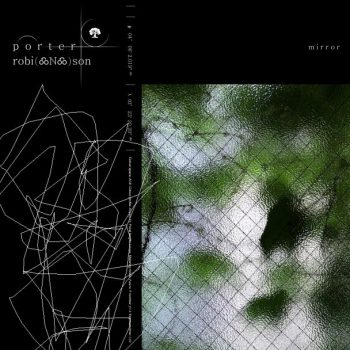
Atwood Magazine spoke to Porter Robinson about the balancing acts of personal experience and external inspiration in the creation of authentic music, nostalgia, and appreciation for the present, and how they all come together in his upcoming album, ‘Nurture.’Robinson’s uniqueness could be attributed to his dedication to the search for beauty and magnificence wherever he can find it. While some artists will speak up and down about what they create as a result of their abilities and the motivations that brought them there, Robinson is steadfastly enamored with curation and the examination of the intricacies that make things beautiful and poignant and interesting.
Nurture brings together a whole lot of that, with “Get Your Wish” considering the many faces of idolatry and “Mirror” probing the inner dialogue of someone plagued by self-doubt, the rest of the album is sure to offer these succinctly powerful reflections from someone who’s been to hell and back but never lost their sense of wonder.
Nurture employs a synthy, higher-pitched version of Porter’s own voice to foster different perspectives and a sense of inner tumult throughout the album, and the result alleviates a lot of the heaviness attached to the darkness of some of these moments. On “Something Comforting,” one of the three singles that are currently out and the track that spurned the themes for the entire project, Robinson creates the exact type of music he’s so inspired by a lyrically emotional, sonically bright song that you’ll surely associate with the suffering and silver linings of this past year.
The deep recognition of the power music holds in one’s own mind and in the ways it brings people together is just one of the things that make Porter Robinson one of the most compelling young artists around right now, and we’re lucky to have him!
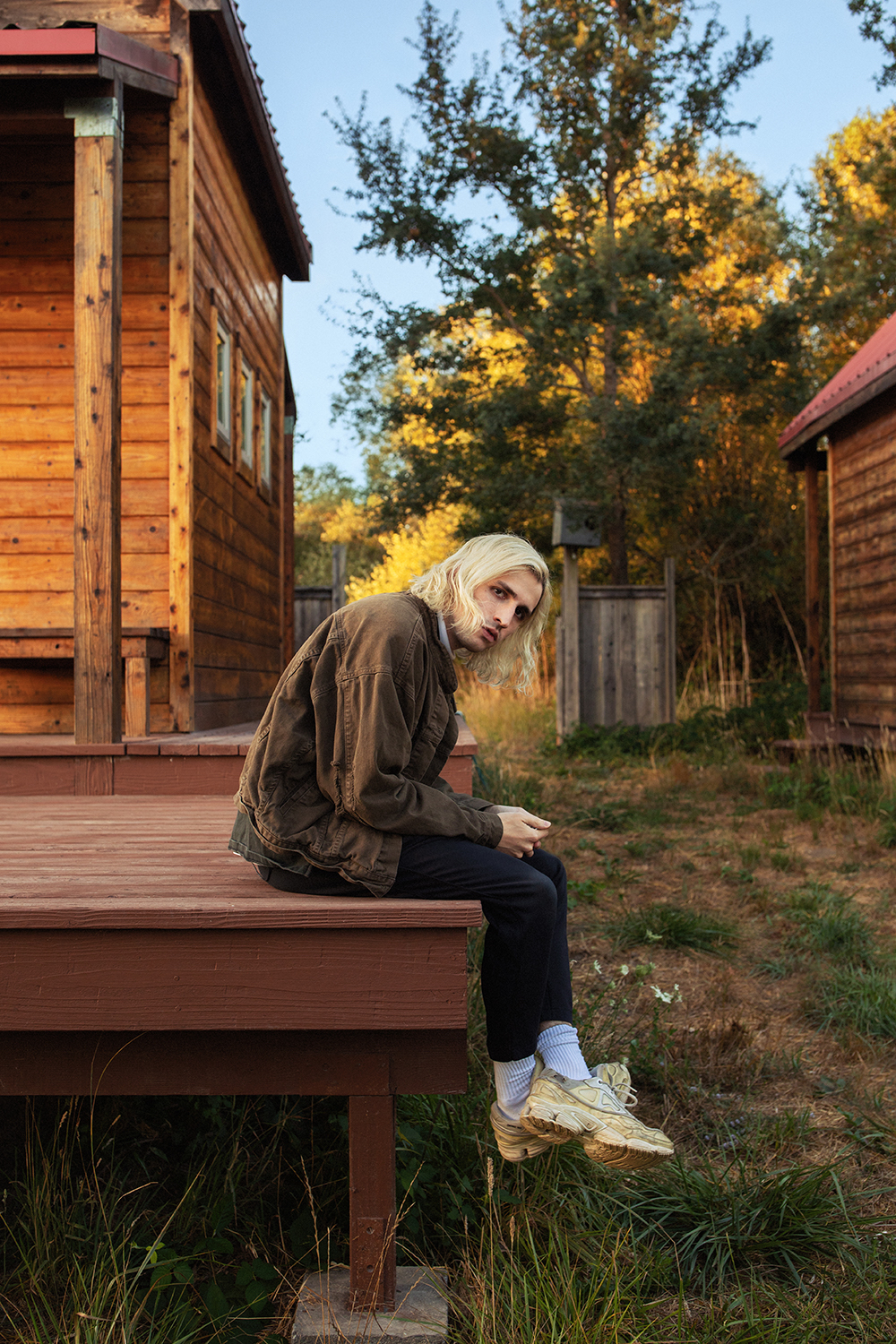
A CONVERSATION WITH PORTER ROBINSON

Atwood Magazine: Thank you for taking the time! I super appreciate it. I wanted to start off by asking how you’d conceptualize your forthcoming album, Nurture?
Porter Robinson: So Nurture came after this period of immense struggle in which I was deconstructing my entire sense of who I was and being a musician and wanting to think of myself as someone who my parents could be proud of. When I had this period of intense creative struggle where I couldn’t make music, I became increasingly desperate every day to write something I was proud of, and the horrible feedback loop from that was that the more desperate I became to prove that I could still make music, the more difficult it became to write anything.
I was incredibly self-critical and self-conscious, and I was really hard and down on anything I was making. It was a real low point in my life that began with a creative struggle and extended into really serious emotional mental health issues. So Nurture came together because the only thing I could stomach were these very sweet sounds. My way of writing music is to find whatever is beautiful to me, and reframe it in a way that makes it with my own heart. I was trying to find something that is beautiful to me but my everyday experience was not beautiful, it was really unhappy, and I couldn’t tolerate writing music that sounded like that. It just made me feel worse.
So, the sound of the album is very sweet, and it’s very pretty and it’s easy on the ears. There’s the real open pain in the lyrics, and I also tried to inject a little sense of artificiality, too. I altered my voice on almost every song on the album. I have a fake voice; I pitched my own voice up and it takes on this feminine, maybe childlike quality depending on how you interpret it. And I’m singing these duets with the high pitched version of my own voice, or doing songs solo from that perspective. So I wanted there to be a sense of beauty but tie in some pain and some corruption and artificiality.
That perspective comes across on ‘’Get Your Wish’’ and ‘’Something Comforting.’’ In the past, you’ve said a few times that you really just want to make music that is beautiful, and that’s something that is important to you. Do you think your definition of beautiful has evolved over your career so far?
Porter Robinson: Definitely, I think that my initial sense of what is beautiful was really focused on fantasy and escapism, and I wanted to sort of give life to the feeling of exploring the fact that there’s this imaginary infinite universe. And I still cherish all of those feelings, but I think my sense of beauty is a lot more every day now. A lot more real life, and intimate. I started trying to be really aware of it- I started experiencing time dilation in a pretty heavy way, I started getting older. Months would go by and nothing would happen and time was just flying by. So I wanted to slow down and be able to appreciate the beauty that surrounds me outside of my head.
I found that imagination is great but there’s a lot of separation that occurs. I wanted to slow down a bit and kind of come to realize what was magical and beautiful and worthwhile about the world that we live in. It’s not a perspective that is super popular, there’s so much despair, sometimes rightly so, but I also think it’s worthwhile to appreciate what’s beautiful because we’re all gonna die! We get to experience being alive and occupying a human body and living in this world where there’s music to be experienced and nature to go see and relationships and love.
It’s easy to take these things for granted or to see only the pain but I think it’s worthwhile to try to really experience those things. I think that my sense of beauty has sort of gone from being imaginary worlds to being a good human being in reality and in real life. Right now I’m definitely anticipating the future because I want this album out so badly and I’m desperate to tour, but the lessons around valuing reality and the intimate and every day won’t go away. It’s like I realized how beautiful the world around me can be, and it’s hard to unsee that.
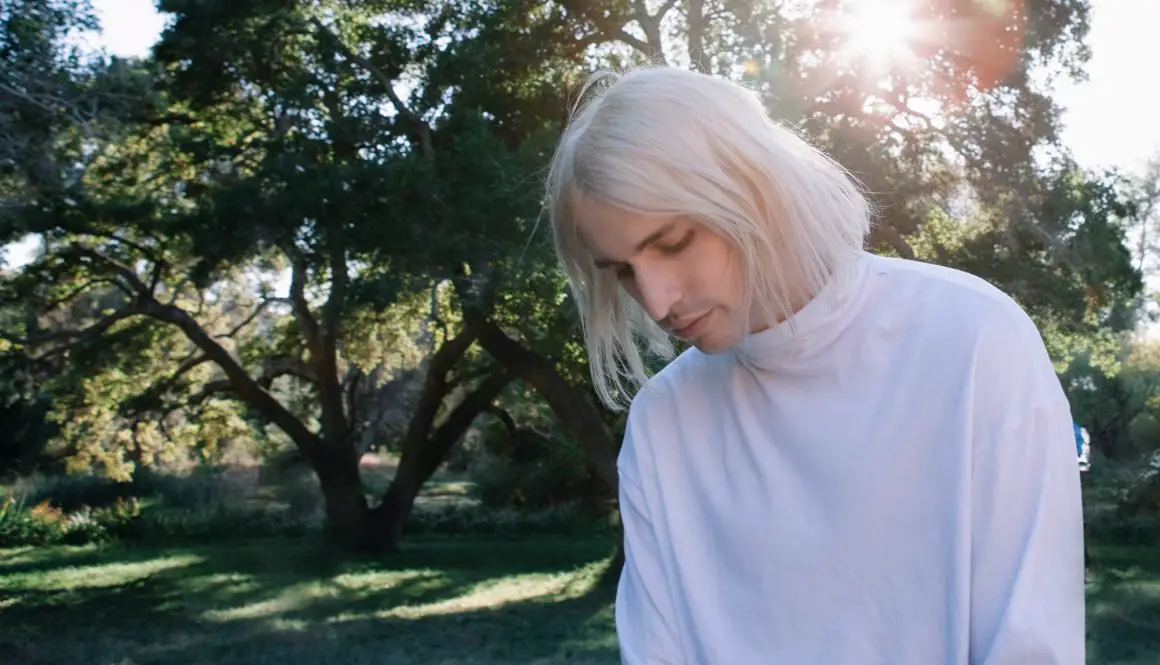
Very well said. Similar to that, I know you’ve talked about how you saw the difficult experiences you’ve had as a kind of sacrifice and how they led to a breakthrough on Nurture, and, specifically, in “Get Your Wish”- do you still feel like you use your own happiness as a measure of your productivity and the quantity and quality of music you’re churning out?
Porter Robinson: Honestly I don’t know if I’ll ever be able to shake that, I feel at my happiest when I’m working productively. I would love to be able to not have my happiness so wrapped up in my ability to make music but right now that’s how I am. On a day that my music is going well, I feel excited about what I’m working on, I feel happy and optimistic and I feel like I can do everything. And at times when I’m really creatively stuck and I can’t see my way out of it, it feels like I’m never gonna have a breakthrough or it’s even possible, I’m quite unhappy. And sometimes I’m relapsing back into this horrific depression. Fortunately, I’ve gotten a tighter grasp on it now, but, unfortunately, a lot of my sense of happiness is still pretty much derived from my work and how much I enjoy the day-to-day.
Do you feel like there's anything that's too personal to be translated into your work? Obviously, you have a pretty tight relationship between writing music and the things you experience. But do you ever feel like there's a line? Or do you think that like, the more personal, the better?
Porter Robinson: I think that when you’re writing music, and when you’re making any kind of art, you’re sort of curating all the things that are available to you. I throw away most of my songs. And the ones that I keep tend to tell a story in a way that’s really potent. I liken it to trying to, like, tickle yourself? It’s hard to make yourself feel the effects as strongly as when somebody else does it for you. I think I tend to write music that’s really very stimulating because I’m trying to make people feel the way my favorite artists make me feel.
And so, with the lyrics I write and the way I approach music it’s always a pretty refined version of a story. I’m always going to be showing the top five percent of what I’ve made. I don’t know that there’s a way for me to be one hundred percent personal without just live streaming my life 24/7. You want to share with people the best work in the sort of idealized or really potent version of your worldview. So yes, to me there is a line, and the line would be that anything past the point of interesting or stimulating or beautiful or evocative I’m not interested in sharing. I’ll share what’s personal for me up to the point that it’s emotional for people.
And then the other thing is obviously the safety and privacy of my immediate family and people in my life. Anything that encroaches on that would be too personal. Sometimes it’s hard for me to share new music with my parents and with my brothers. We haven’t talked as openly about some of the stuff that I went through, and I’ve alluded to it before but I have to try to tell them like, this is how I felt in my head. But it is also a sort of dramatized version because I’m trying to ratchet up the pain that I was feeling so that the listener can feel in a way that’s similar to how I felt it. So I’m like, don’t get too worried about me, but I did go through this stuff and I’m trying to express what it was like.
You’re one of the pioneers in the softer, more emotionally charged EDM space and you've definitely been at the forefront of EDM that's shifted in that direction. Having started in a more dancier realm of music, do you find the genre to be constricting? Or do you like the way it’s fragmented into so many subsets?
Porter Robinson: It’s kind of always been like that. Since the inception of electronic music, there’s been niche interests and subgenres and points where there was really emotional dance music, and I guess the difference for me is I don’t see what I’m doing as being EDM because I think EDM is made for, from my point of view, for other DJs to play. And there are some requirements that are attached to EDM like it has to have drive and it has to work in the live setting.
When I’m writing music I’m not thinking at all about it being at the main stages of dance music festivals, or how I want to play it, I’m just trying to express myself as purely as I can. But I love electronic music and I’ve always made electronic music. So there’s definitely aspects of EDM in what I do. I think in 2013, 2014 I was still angsty, and very much like “don’t call me EDM!” Like I wanted to be seen as really different from that. I think I’ve lightened up on that point a little bit. But I just don’t really relate to the mainstage EDM to be honest, personally.
I don’t listen to a lot of EDM. I’m always curious to see if people think of what I do as EDM, like I said I don’t see it that way but it is the world I came out of and I still use some of those sounds. There’s always gonna be good music in every genre, and I’m not a big believer that certain genres are tainted or corrupt. There’s this whole fashion around a genre that I’m not that interested in, I’m just bored of that way of thinking. At least right now I see myself as a songwriter, singing on everything and writing all of the lyrics. The imagery of a rave doesn’t come to mind at all.
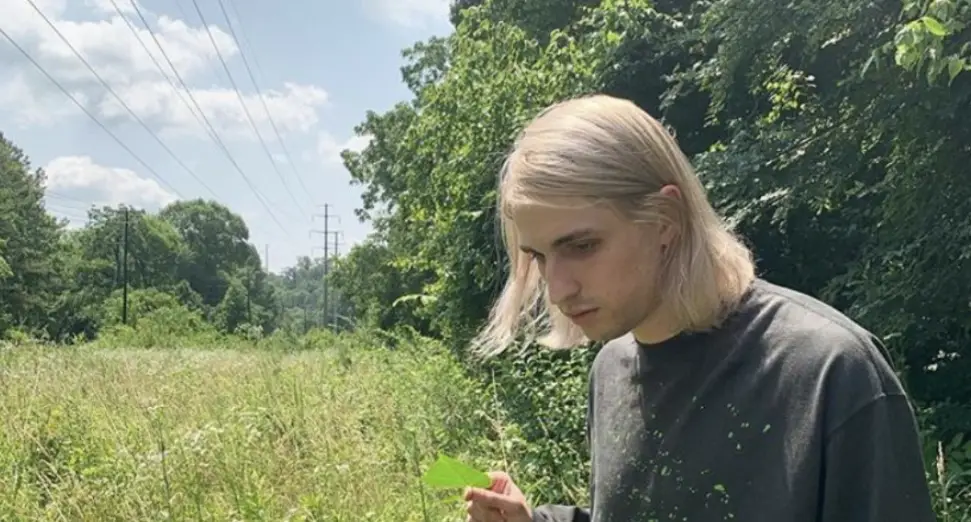
You've hinted at a couple of times the nostalgia element of your music. And I know you've talked about that in interviews before. With Nurture, do you feel as though the nostalgia looks back to one specific time? Or perhaps those difficult personal experiences you mentioned? Or would you say each track is sort of its own world, a la Worlds?
Porter Robinson: I think I’m always going to be a nostalgic person. There are actually quite a few songs on this album where I’m talking about “what if I wasn’t so nostalgic?” Like wouldn’t that be nice? I have this tendency as an artist where I’m always rejecting what I did before. Part of what keeps me moving forward and excited about new ideas is that I get tired of what I’ve done in the past, so I’m playing with the idea on this album that I’m not nostalgic anymore. But that’s not really true.
I’m a very nostalgic person and I love cherishing memories; I like forming new cherished memories and the associations you form between a song and a moment in your life, or a video game and a song, or even watching a certain TV show and having a snack food that you were really into at that time. I love it. I think that part of what is amazing about being human, are these arbitrary, beautiful associations that you form between the two experiences that you get to have, I love it. But I definitely don’t have nostalgia for the time period that I’m singing about. A lot of what I’m singing about is being depressed and being unable to do what I love.
The way I see it is, I tried singing about pain I was feeling in 2015, 2016, and I couldn’t do it. Like I would try to write songs, I would literally be in the studio crying, thinking I can’t do this anymore. And it was too painful for me to try to talk about this. And it was only after tons and tons of effort and changes in my life that I was able to make music again, that I could go back and sing about what I was feeling in 2015, that’s what “Something Comforting” is. I wrote the instrumental in 2015, and I wrote the lyrics and vocal melodies in 2019. Finally, I could talk about those subjects without, you know, just being miserable.
So that's interesting, in “Something Comforting” you were able to convey what you were feeling via the instrumental but it wasn't until years later that you could verbalize it?
Porter Robinson: I guess so but I was also trying to write lyrics in 2015 for it. And I just couldn’t do it. I wrote so many different choruses for that song, so many different verses. One of the initial themes for that song was about finding a way to keep another person happy. That was the initial lyric, I was singing to someone else and I was trying to keep them happy. And then I started trying to sing about what I was going through and I just couldn’t. And I know that sounds dramatic but when I would be working and thinking about what my everyday experience was at that time I felt awful. It was just another reminder of how much I was struggling. So I had to write ten other songs, and then come back to “Something Comforting” last year, and was like now I have the skills, I have the strength and the experience of talking about these issues to address what needed to be addressed.
Watch: “Mirror” – Porter Robinson
So where ‘’Mirror’’ is about your inner critic and the journey you’ve been on with them, ultimately ending on a positive note, did this song also come together partly in that darker time and partly last year, like ‘’Something Comforting?''
Porter Robinson: “Mirror” actually came together mostly in 2019. It was around the time that I was learning about the role that shame had played in my life. I came to learn that I put so much value on the negative thoughts I’d have around my own work – I thought they were protecting me from criticism and failure. Around the time of writing “Mirror”, I started regarding my own critical inner voice for what it is: mere thoughts. This song is about the freedom I felt from that realization.
Lastly I wanted to ask- the tools and applications to make music are more accessible than ever online, what’s something you would offer for advice or a word of wisdom for artists trying to create their own sound? Speaking of course as someone who has had a distinctly recognizable sound from the beginning?
Porter Robinson: My advice would be that it’s almost as simple as trying to resynthesize all of the things that you love to create something new. Like you can’t be trying to recreate just one artist at a time. I used to think that my favorite artists would just think of a sound, and then they had enough skill to create it exactly as they imagined it. And the process isn’t really like that, there’s way more experimentation and randomness that goes into creativity. So when I’m working I try to foster a sense of randomness, I might play on my keyboard for like twenty minutes without trying to make any specific thing and then go back and listen for if anything calls my name. The process is very messy.
And it’s actually messy because, in some ways, some artists are better at collecting what’s good and amazing rather than just making what’s good. I’m trying to cultivate a sense of chaos in what I’m doing and then reign it back in into something that I can work on. In terms of trying to cultivate your own sound, I’m always trying to recombine my favorite things and recognize what’s good about what I love. I’ll really like the piano playing and style of this artist, and the drums of this artist, and the lyrical sensibilities of this artist… I think the most important thing in finding your own sound is to be sincere in everything that you do and make sure it’s coming from a place of love, and not from a place of cynicism or manipulation.
It’s so easy to think, “I want to have a career in music, I need to follow whatever the current trend is,” but if you’re following that trend at the expense of making music you actually love you’re gonna burn out. I don’t think people are as good at lying to themselves and others, and I think that people are best at music when it’s a sincere expression of love. That’s what I’m trying to do. I’m trying to take the things in the world that I’ve heard or seen or experienced, that filled me with that sense of love and joy, and try to make my own version of it. Like, I would be so bad at making a genre of music that I don’t like. That would be my other piece of advice to people: rather than trying to predict what the next big thing is, whatever the flavor of the month is, figure out what you can be really good at that’s specific to you, and what you really love and care about.
And it’s even better if it’s something that you love that other people don’t seem to care about yet because that’s where you’re really going to shine. People will get it once you express your own personal take on what you think is cool. Find what you love, find what’s unique about what your taste is, and then try your best to do that. It’s never that simple, and there’s always unpredictable parts of the process. You’ll discover new techniques that other people aren’t doing and then it’ll be your thing. For me, the pitched-up voice aspect of Nurture was an unexpected thing. It began with me just fooling around and then I was like wait, this is kind of a signature sound and it sounds like something I could do again and again. Something that could be a beautiful and personal and unique aspect of this album. It’s all about experimentation and trying to be as sincere as you can and find what you love and reframe it in a way that only you can.
— —
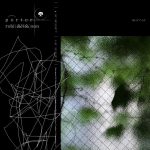
Connect to Porter Robinson on
Facebook, Twitter, Instagram
Discover new music on Atwood Magazine
? © 2020
:: Stream Porter Robinson ::

